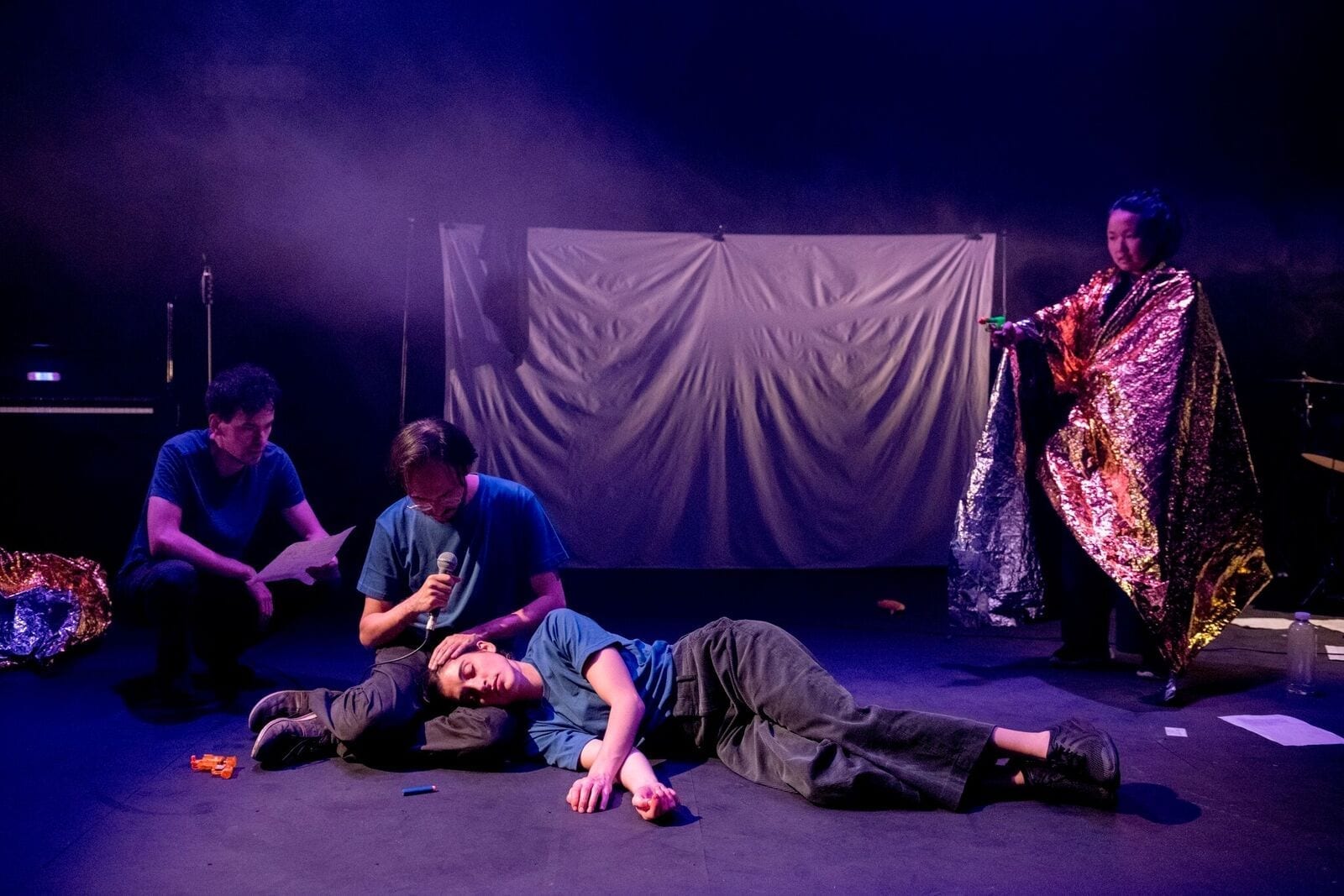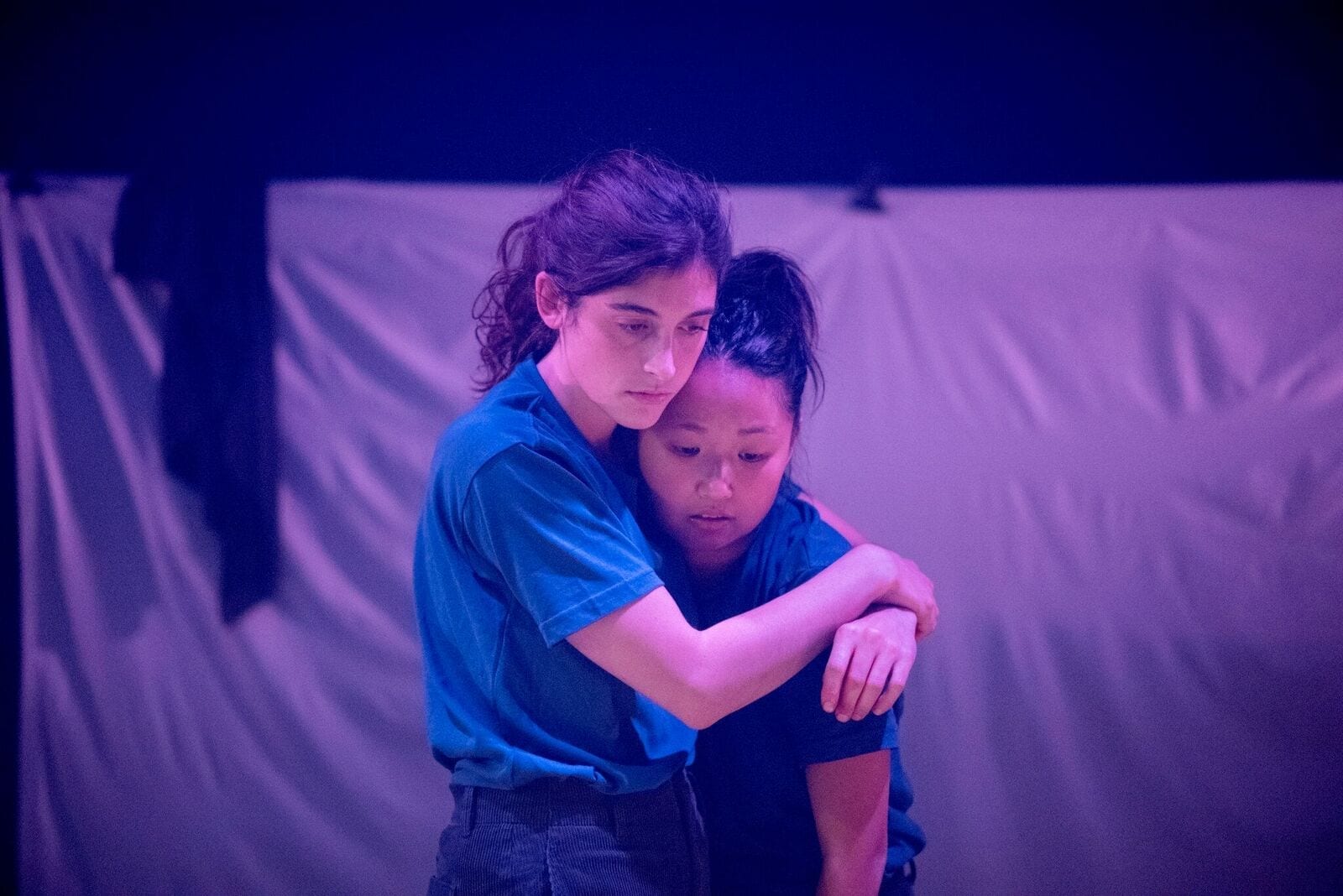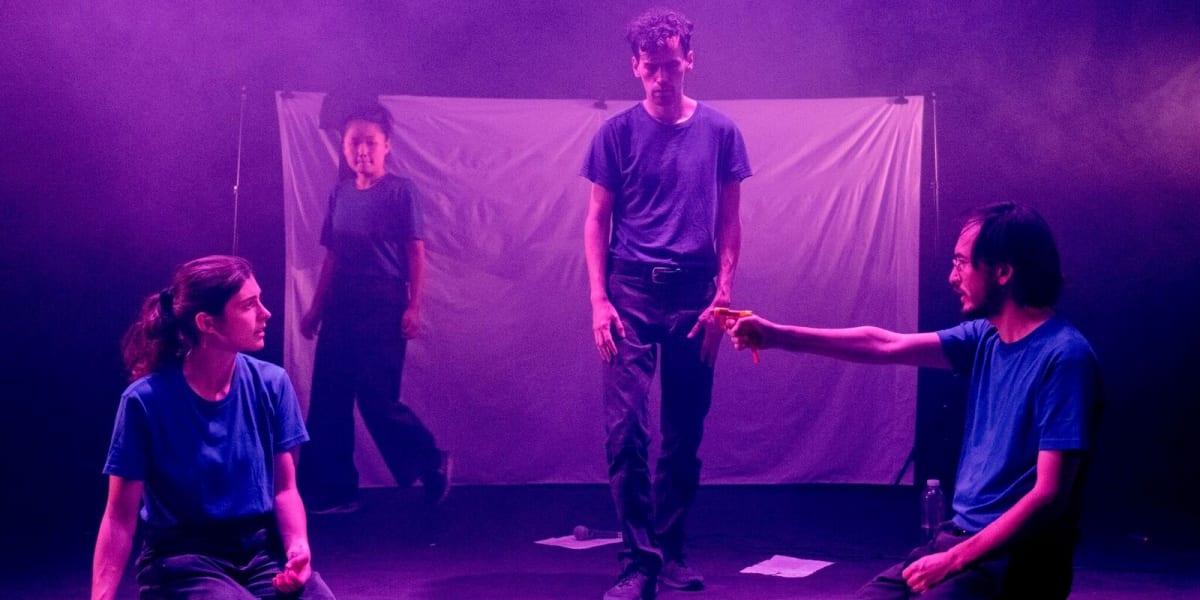Marathon is a newly devised piece of theatre that attempts to tell a war narrative through experimental means. It is supposedly about a messenger bringing news back from the front lines to his king; we see him pause and rest, recounting vignettes detailing the atrocities of the conflict with his friends, but the twist is that they all suffer from collective amnesia. Unfortunately, the way Marathon tells this story is so peculiar that it feels aimless and insubstantial. It lacks the necessary bones for structure and fails to convey the meaning of the messenger’s flight convincingly.

Marathon is a mess of subconscious raving and avant-garde clichés. It is deconstructive theatre at its extreme, where scenes of a confusing nature melt into one another: a haircut gives way to throat-slitting, then smoke and pyrotechnics reveal a neon sign proclaiming ‘Corpse’. The whole thing is very discombobulating from start to finish; it’s missing a contextualising foothold that would help us connect emotionally with what is displayed – vagueness is the point of the play and also its biggest flaw.
There is far too much stopping and starting. Its vague premise is infuriating enough, but the fact that these scenes never pick up any momentum is the most annoying aspect. Suddenly a kneeling and shrouded figure is pelted with nerf bullets to re-enact a pistol execution; these little windows into warfare violence are too brief and insincerely explored to have a great impact.
The play seems to be a dramatisation of how we absorb news stories in the digital age. We are accustomed to drifting from tab to tab on the internet, perusing information about global travesties like bombings overseas, yet distanced by the coldness of our screens. This disconnect is reimagined onstage; it’s forgetful and vague to mirror how we play out these scenarios in our minds in an often detached way.
The news we read and watch is so saturated with atrocities that we become desensitised to it: the characters onstage reflect this by often trivialising death, laughing or talking about it blank-faced, nonchalantly cradling dead bodies, coolly discussing different ways to kill someone and delineating the absences of existence when you die in a scientific fashion. They also sometimes cloak themselves in gold foil blankets as a parody of refugee sheltering.

There is a lot of sensory exploration in Marathon and it is sometimes overwhelming: raindrops are envisioned in patting and clapping, giving away to pattering feet and stomping, then crashing and exploding of shells in bomb-falling cacophonies. The scale of loudness could have been played out in a linear fashion for a crescendo effect, but they missed a trick; the random motions of Marathon causes a loss in force of meaning. It devolves into yelling, singing and shouting for no discernible reason and, more often than not, you find yourself perplexed as to why they have chosen to go at breakneck speed in an awkward artistic direction.
The problem with Marathon is that it is overblown: it’s surreal for the sake of it, such as when one character randomly talks about a giant round table to seat hundreds of people. The gratuitous use of props meanwhile, such as the aforementioned explosive displays of fireworks and smoke, are really frivolous expenses. Meta- and deconstructive theatre can and has worked in the past, such as in Brecht’s Threepenny Opera or Beckett’s Breath – famously filmed by Damien Hirst in a minute-long clip, but here it is self-congratulating and smug. The show won the Oxford Samuel Beckett Theatre Trust Award, which surely should be a stamp of approval, but all it has done in my eyes is given them more cash to burn.

